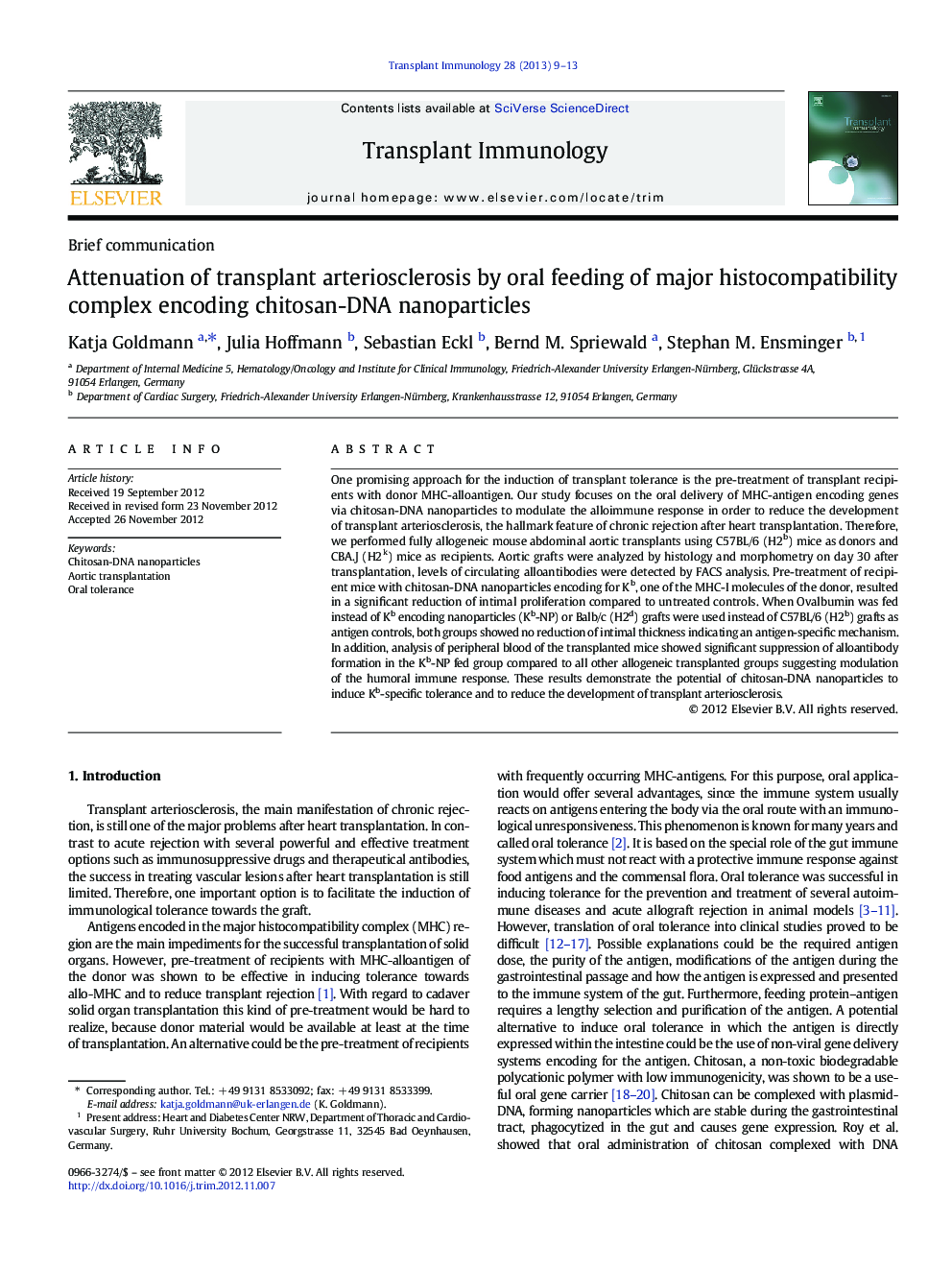| Article ID | Journal | Published Year | Pages | File Type |
|---|---|---|---|---|
| 3392104 | Transplant Immunology | 2013 | 5 Pages |
One promising approach for the induction of transplant tolerance is the pre-treatment of transplant recipients with donor MHC-alloantigen. Our study focuses on the oral delivery of MHC-antigen encoding genes via chitosan-DNA nanoparticles to modulate the alloimmune response in order to reduce the development of transplant arteriosclerosis, the hallmark feature of chronic rejection after heart transplantation. Therefore, we performed fully allogeneic mouse abdominal aortic transplants using C57BL/6 (H2b) mice as donors and CBA.J (H2k) mice as recipients. Aortic grafts were analyzed by histology and morphometry on day 30 after transplantation, levels of circulating alloantibodies were detected by FACS analysis. Pre-treatment of recipient mice with chitosan-DNA nanoparticles encoding for Kb, one of the MHC-I molecules of the donor, resulted in a significant reduction of intimal proliferation compared to untreated controls. When Ovalbumin was fed instead of Kb encoding nanoparticles (Kb-NP) or Balb/c (H2d) grafts were used instead of C57BL/6 (H2b) grafts as antigen controls, both groups showed no reduction of intimal thickness indicating an antigen-specific mechanism. In addition, analysis of peripheral blood of the transplanted mice showed significant suppression of alloantibody formation in the Kb-NP fed group compared to all other allogeneic transplanted groups suggesting modulation of the humoral immune response. These results demonstrate the potential of chitosan-DNA nanoparticles to induce Kb-specific tolerance and to reduce the development of transplant arteriosclerosis.
► Immune modulation using donor-MHC encoding chitosan-DNA nanoparticles was studied. ► Nanoparticles suppressed alloimmune response in a murine aortic allograft model. ► Transplant arteriosclerosis and alloantibody formation were reduced.
